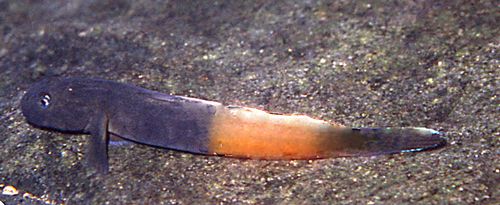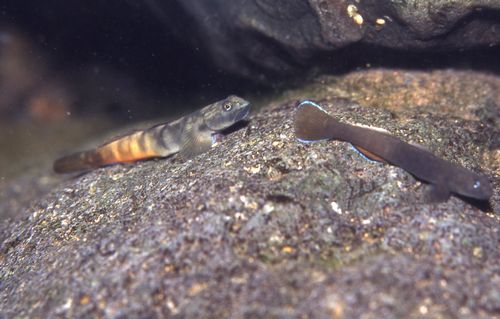Fish: Native Species
Scientific name: Lentipes concolor
Common name(s): ‘O‘opu ‘alamo‘o or ‘O‘opu hi‘u kole


Status: Endemic
Habitat: Mid to upper elevation sections in clear, clean, well-oxygenated high gradient streams
Preferred Area of Stream: High velocity riffle areas and at the top of pools just below high gradient cascades and waterfalls.
Range in Hawai‘i: All Hawaiian Islands, now rare on O‘ahu
Diet: Omnivorous and will eat a wide range of algae, worms, and aquatic insects, and likes to eat small ‘öpae kuahiwi.
Predators: Birds such as ‘auku‘u (black-crowned night-herons). When it comes through the estuary many species of native fish will eat ‘o‘opu ‘alamo‘o such as āholehole, ulua (Caranx spp.), moi (Polydactylus sexfilis) and kākü (Sphyraena barracuda). ‘O‘opu akupa will also eat this species during its upstream migration. Introduced fish are a problem because they have brought in new parasites and all prey on this and other native ‘o‘opu species.
Fact: ‘O‘opu ‘alamo‘o is perhaps the most remarkable fish found in the Hawaiian Islands due to its world-record climbing abilities, and this species has been documented to climb Hi‘ilawe Falls in Waipio Valley. With a vertical drop of nearly 1000 ft (300 m), Hi‘ ilawe Falls is the highest free-fall waterfall in Hawai‘i and also one of the highest in the world. It is remarkable that ‘o‘opu alamo’o can ascend a single waterfall of this height, a feat matched nowhere else in the world.
|

